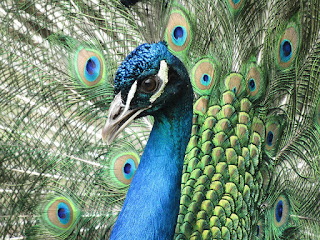Reading Notes: Jataka Tales by Francis and Thomas Part A
These are notes over the Jataka Tales by H.T. Francis and E.J. Thomas. In the Little Gildmaster, a young man overhears the Gildmaster make one small comment on a mouse and then used that advice to accrue quite a lot of wealth. Along the way, the young man used his earnings several times to benefit others, who then gave him more means to make money by returning his favours. At first, the young man seems like he does not have a mind of his own because he simply did what the Gildmaster said without first coming to conclusions himself. This seems to be his character weakness. However, his generosity towards the villagers would be character strength.
The Peacocks Wooing starts off with a good line: "Once upon a time, in the first cycle of the worlds history." This made me wonder if the following events happened long ago in our history or if it was say, 100 BC, in another cycle of events in which things repeated themselves. How many 100 BCs have their been? This sort of profound start really set the tone for the profound teachings that followed. Again, the main downfall was letting one's desire to be the best and have the best carry them away in their own emotion resulting in actions that are not the best. However, I will say that dancing seems like a harmless offense.
In The Haughty Slave, the son is not very nice to the slave. The slave is being rude, I assume, because the lure of the money is bad for his character. However, the idea of being forceful with the slave, or even having a slave at all, calls into question, for me, all the good character that the writer is trying to associate the son with.
The Peacocks Wooing starts off with a good line: "Once upon a time, in the first cycle of the worlds history." This made me wonder if the following events happened long ago in our history or if it was say, 100 BC, in another cycle of events in which things repeated themselves. How many 100 BCs have their been? This sort of profound start really set the tone for the profound teachings that followed. Again, the main downfall was letting one's desire to be the best and have the best carry them away in their own emotion resulting in actions that are not the best. However, I will say that dancing seems like a harmless offense.
In The Haughty Slave, the son is not very nice to the slave. The slave is being rude, I assume, because the lure of the money is bad for his character. However, the idea of being forceful with the slave, or even having a slave at all, calls into question, for me, all the good character that the writer is trying to associate the son with.
Peacock by myska0091 on Pixabay



Comments
Post a Comment